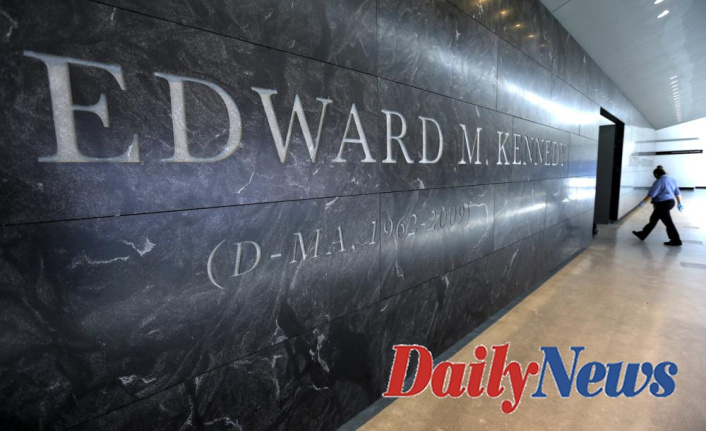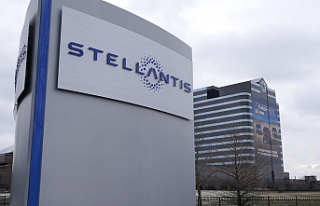Dutchess County, New York, pledged $12 million to renovate a minor-league baseball stadium in order to meet the requirements of the New York Yankees for their farm team.
In Massachusetts, lawmakers provided $5 million to clear the debts of the Edward M. Kennedy Institute to the U.S Senate in Boston. This nonprofit was established in honor of the senator who has been financially challenged.
These three distinct outlays share one thing in common. They are all among the dozens that states and local governments across the United States are funding using federal coronavirus relief money, despite not having anything to do with fighting the pandemic. A review by The Associated Press found.
These expenditures are a fraction the $350 billion that was made available last year through the American Rescue Plan in order to assist state and local governments with the crisis. These are not the same uses of aid as the $1.9 trillion bill that Democrats proposed. The money was needed to save jobs and help people in need, to open schools, and to increase vaccinations.
Republicans have already resisted extra money for pandemic relief as President Joe Biden requested. Programs that appear far removed from those that combat the virus will likely increase the resistance within the GOP.
"They need to provide us with an accounting," said Senator Mitt Romney (Republican from Utah), who unsuccessfully attempted to amend the Democrats bill last year to increase the limits on how money could be spent. He said, "Show us how your have spent the money Congress has given you."
Many of the projects identified in the AP echo disasters like Alaska's $398 Million "Bridge to Nowhere", which was canceled after a public uproar in 2007.
State and local governments are not restricted by the permissive Treasury Department rules that govern how pandemic money is spent. New Jersey has allocated $15 million to upgrade the state's bid for hosting the 2026 World Cup. Officials in Woonsocket (Rhode Island) allocated $53,000 to renovate City Hall.
Rep. Abigail Spanberger (D-Va.) described some expenditures as "outrageous" or "just nuts", describing them as an affront for responsible local governments.
She said, "Our hospitals were overwhelmed by the pandemic and somebody now owns a hotel somewhere?"
Among the identified projects and expenditures by the AP are:
$400,000 million for the construction of new prisons in Alabama. This account accounts for almost one-quarter the total state aid it will receive through this program.
Tens of millions of dollars will be spent on tourism marketing campaigns in Puerto Rico (70 million), Washington, D.C. (8 million), and Tucson, Arizona (2 million). Alexandria, Virginia also announced that it would spend $120,000 on its tourism website.
$6.6 million to replace irrigation systems on two Colorado Springs golf courses
Birmingham, Alabama approves $5 million to support the 2022 world games. This event will feature niche sporting contests like DanceSport, Korfball, and Flying Disk.
--$2.5 Million to hire parking enforcement officers in Washington D.C.
Pottawattamie County in Iowa will receive $2 million to purchase a private ski area.
$1.1 million to pay St. Louis child support arrears. According to a city memo, owing child support can prevent some people from seeking work. The overdue payments are taken from their paychecks. The program would "empower individuals" through the payment of a portion.
$300,000 to create a museum in Worcester (Massachusetts) in honor of Major Taylor, a well-known Black cyclist from the turn 20th century, who was known as the "Worcester Whirlwind", and who died in 1932.
Broward County officials supported their proposed 29-story, 800-room hotel. The county will own the property, but it will be managed by a private management company.
They also question whether federal money was actually being used for this project. Broward County originally allocated $140 million in federal coronavirus assistance to the project. This was against Treasury Department rules, which generally prohibit spending large capital projects with the money.
The county came up with a common solution to get around the prohibition.
This agenda from the February 22 county board meeting explains how: After a series of back-to-back votes, commissioners reclaimed the federal money that they had given the hotel. The county's general funds were then used to transfer the money to the hotel. The cash was then transferred back from the general fund to the project.
Monica Cepero, County Administrator, insists that no federal funds will be used for the development of the Hotel Project.
She stated that the County had reviewed Treasury guidance and changed its use of (the funds) funds.
However, some lawmakers in Congress are not swayed.
Spanberger said that they are money laundering financing that is intended to aid communities that are in pain. He called for greater oversight.
In a statement, local officials from New York's Dutchess County said that the $12 million expenditure was in line with Congress's intent.
"It's ironic, that this criticism emanates the same congressional members which have brought back pork barrel-earmarks," stated Marcus Molinaro, Dutchess County Executive.
The Edward Kennedy Institute didn't respond to messages requesting comment about the $5 million of coronavirus assistance received from Massachusetts. According to tax filings for those years that are now publicly available, the institute suffered a loss of $27 million between 2015 and 2019.
Even in instances where state and local officials have broken spending rules, the sheer amount of money that was pumped out poses a problem for government oversight offices. They are often shortstaffed and underfunded.
Romney stated that the amount of money spent was "so large and so far above anything that has been spent in this country before,"
However, groups lobbying for local governments in Washington claim that the spending rules were designed to allow as much flexibility as possible.
Mark Ritacco, the director of government affairs at the National Association of Counties, stated that "Counties should have the ability to decide what's best for themselves." "Their residents will decide if that is appropriate or not at their ballot box."
These latest findings are in line with previous reporting from the AP. In October, it was revealed that large cities and states had only spent a small fraction of their relief funding six month after it was approved. This was despite their requests for emergency cash while Congress was still discussing it.
Some school districts had enough federal pandemic cash to spend it on new stadiums, arenas, and football turf. Other states used discretionary funding to fund school choice initiatives they could not get through their legislatures.
Rich Delmar, deputy inspector general for Treasury Department declined to comment on whether any active investigations were underway into the use of the state or local pots of money.
Delmar stated in an email that all projects could be subject to investigation and audit. He also said that they were actively involved in oversight.
Biden has stated that his administration needs more money for items directly connected to the pandemic.
The White House claims that without it, the administration will not be able replenish depleted stocks of therapeutics and vaccines. Republicans say that winning their support depends on the money being used to pay for it.
Leaders reached a deal this month that would have allowed them to recoup some state aid. The agreement was rescinded by several governors and the rank-and-file House Democrats.
At least one Democrat tried to raise campaign money off her opposition to recoup local money.
A fundraising email from Debbie Dingell, Michigan Rep. reads: "We had a bit fight when they tried taking money away from Michigan." "I wasn't going to let the Midwest be hurt. We won.












